Discussion Description:
While deans have traditionally been expected to be skilled fundraisers, the responsibilities have expanded to include the identification, creation and support for additional and alternative revenue sources to J.D. tuition and alumni giving. Hear from experienced deans who have had success in expanding traditional law school revenue sources, and consider their lessons learned when exploring revenue expansion at your own law school.
*This Event was not Recorded
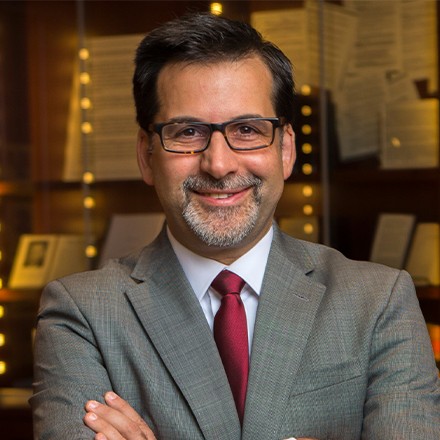
A graduate of Princeton University’s Woodrow Wilson School of Public and International Affairs and Yale Law School, Robert B. Ahdieh served as law clerk to Judge James R. Browning of the US Court of Appeals for the Ninth Circuit before his selection for the Honor’s Program in the Civil Division of the US Department of Justice.
While still in law school, Ahdieh published what remains one of the seminal treatments of the constitutional transformation of post-Soviet Russia: “Russia’s Constitutional Revolution—Legal Consciousness and the Transition to Democracy.” Ahdieh’s work has also appeared in the Boston University Law Review, Michigan Law Review, Minnesota Law Review, NYU Law Review, and Southern California Law Review, among other journals. Ahdieh’s scholarly interests revolve around questions of regulatory and institutional design, especially in the financial arena. His particular focus has been on various non-traditional regulatory structures and modes of regulation, including those grounded in dynamics of coordination. Though relatively less studied in the legal literature, the framework of coordination holds significant promise both in helping us theorize existing regulatory patterns and in defining new regulatory constructs for the future. Ahdieh has served as a visiting professor at Columbia and Georgetown law schools, as well as at Princeton University. He has also visited at the Institute for Advanced Study, at the University of British Columbia, the University of Warsaw, and Singapore Management University, among other overseas institutions.
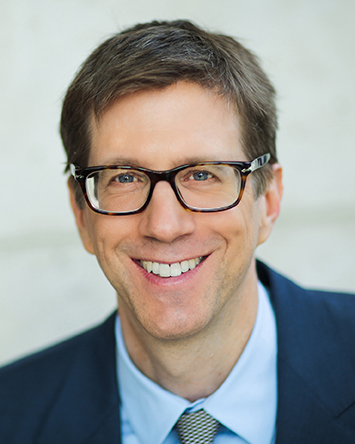
Richard A. Bierschbach is Dean and John W. Reed Professor of Law at Wayne State University Law School. He previously taught at Yeshiva University’s Benjamin N. Cardozo School of Law in New York, where he also served as Vice Dean.Dean Bierschbach is an award-winning teacher and a leading scholar of criminal law and procedure. His research explores how the criminal justice system’s institutional and procedural structure intersects with its substantive and regulatory aims. His work has appeared in numerous top law journals, including the Yale Law Journal, the Michigan Law Review, the Virginia Law Review, the University of Pennsylvania Law Review, the Northwestern University Law Review, and the Georgetown Law Journal, among others. While at Cardozo, he twice received the Best Professor Award from the law school’s graduating class.
Before entering academia, Dean Bierschbach clerked for Judge A. Raymond Randolph of the U.S. Court of Appeals for the D.C. Circuit (1997-98) and Justice Sandra Day O’Connor of the U.S. Supreme Court (2000-01). Between those clerkships, he served as a Bristow Fellow in the U.S. Department of Justice’s Office of the Solicitor General and an Attorney-Advisor in the Justice Department’s Office of Legal Counsel. He has also worked in the New York offices of three international law firms—Wilmer, Cutler & Pickering (now WilmerHale), Gibson, Dunn & Crutcher, and Orrick, Herrington & Sutcliffe—as a member of their Supreme Court and appellate litigation practices.
Dean Bierschbach received his bachelor’s degree in history (summa cum laude) from the University of Michigan (1994) and his law degree from the University of Michigan Law School (1997), where he won the Daniel H. Grady Prize for graduating first in his class and the Henry M. Bates Award, the law school’s highest honor. He has held various leadership positions within the American Bar Association and is an elected member of the American Law Institute and a Life Fellow of the American Bar Foundation.at Wayne State University Law School. He previously taught at Yeshiva University’s Benjamin N. Cardozo School of Law in New York, where he also served as Vice Dean.
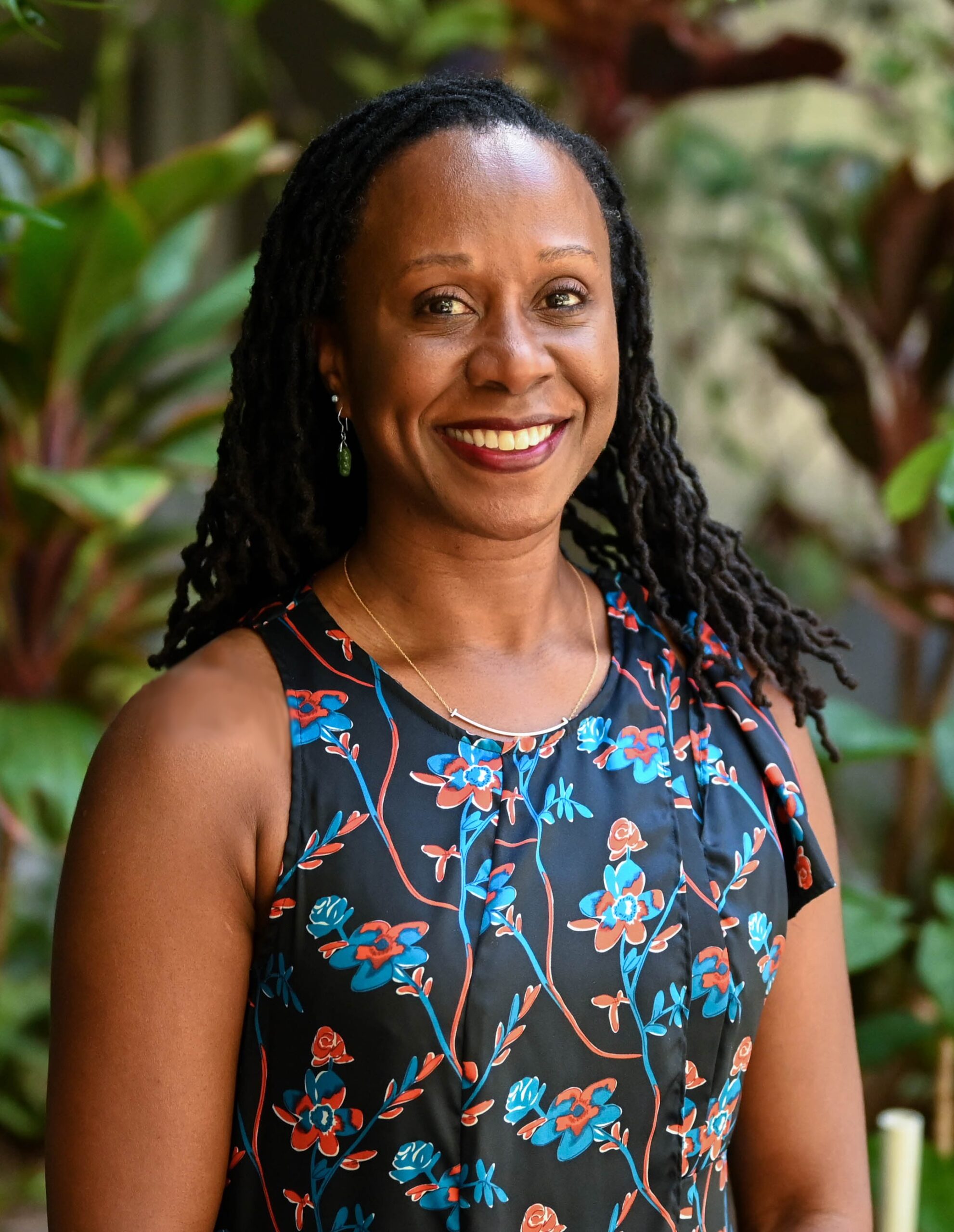
Dean Camille Nelson has long been an outstanding member of the legal community. Prior to her appointment as Dean of the University of Hawai’i at Mānoa, William S. Richardson School of Law in 2020, Dean Nelson served as Dean of American University Washington College of Law (“WCL”), and as Dean of Suffolk University Law School in Boston. She was also a Professor of Law at the Maurice A. Deane School of Law at Hofstra University, a Dean’s Scholar in Residence and Visiting Professor of Law at Washington University in St. Louis School of Law, and a Professor of Law at Saint Louis University School of Law, where she was recognized as both Professor of the Year and with a university Faculty Excellence Award. She has taught Contracts, Torts, Criminal Law, Comparative Criminal Law, Transnational Law, Critical Race Theory, Criminal Procedure, and Professional Responsibility at a number of law schools, including the University of Ottawa, Seattle University School of Law, Université Paris Dauphine, and the University of Puerto Rico. She is an elected member of the American Law Institute. Prior to entering academia, Dean Nelson was a litigator at McCarthy Tétrault (a large Canadian law firm), and clerked for Justice Frank Iacobucci of the Supreme Court of Canada, the nation’s highest court.
Dean Nelson’s scholarship focuses on health law, criminal law and procedure, comparative law, and leadership, through the lens of cultural studies and critical race theory. She recently served as a co-editor of the Journal of Legal Education of the Association of American Law Schools. She has published many impactful articles, chapters, and essays that have appeared in publications such as the Berkeley Journal of Criminal Law, Yale Journal of Law & Feminism, New York University Review of Law & Social Change, and the Canadian Journal of Comparative and Contemporary Law.
Her scholarship and leadership in higher education have been recognized through a variety of awards and honors. She was named among the Top 35 Women in Higher Education by Diverse Issues in Higher Education magazine and was listed as one of the “Most Influential People in Legal Education” by the National Jurist. Dean Nelson also received the Paul Robeson Distinguished Alumni Award from the Black Law Students Association of Columbia Law School.
Recently, her professional service engagements include serving on the Executive and Steering Committees of the Association of American Law Schools, the board of the Institute for the Advancement of the American Legal System, the board of the Law School Survey of Student Engagement (LSSSE), Teach for America (Hawai`i), and the Overseers’ Committee to Visit Harvard Law School. She completed a three-year term on the American Bar Association Center for Innovation, where she chaired the Fellowship Committee. Dean Nelson was appointed to the Senator Warren and Senator Markey Advisory Committee on Massachusetts Judicial Nominations.
Dean Nelson holds a B.A. with high distinction from the University of Toronto in Administration, a magna cum laudelaw degree from the University of Ottawa Faculty of Law, and an LL.M. from Columbia Law School.
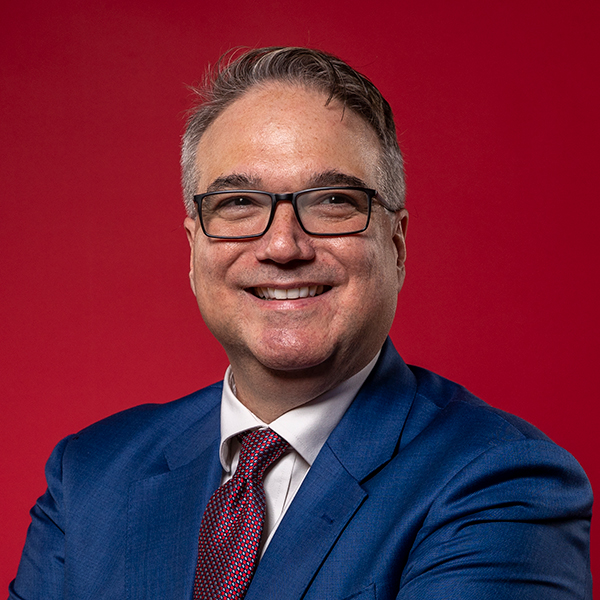
Anthony E. Varona has served as dean of Seattle University School of Law since July 1, 2022. He oversaw the recruitment of the most diverse entering JD class in the law school’s history, which also was the strongest class academically (highest GPA and LSAT) in 13 years. Varona led the greatest ever expansion of graduate program enrollment at Seattle U Law, and launched a new SJD Program; a new Technology, Innovation Law, and Ethics (TILE) Program; and a new Sports Law Program. He recruited nationally prominent faculty and senior staff. He devised interventions designed to improve student academic and bar success and the overall student experience, launched a Dean’s Luminaries in Law Lecture and Conversation Series featuring nationally renowned speakers, and oversaw various communications and intellectual life initiatives that have attracted national acclaim.
Varona was dean and M. Minnette Massey Chair in Law at the University of Miami School of Law, from August 2019 through June 2021. His was a record-breaking deanship in spite of COVID-19’s disruptions, which emerged after his first seven months as dean. He led the recruitment of the two then-strongest JD classes (highest GPA and LSAT) in the school’s recorded history. The law school achieved the highest representation of women law students and the lowest acceptance rate (30%) ever, and increased African American enrollment by nearly 22%. He boosted the bar success rate by 10% year-over-year, raised both US News & World Report reputation ratings, and improved the rankings of 9 of 12 specialties, including a new Top 25 ranking for clinical teaching and a Top 30 ranking for international law. Varona and his team brought in over $8 million despite the start of the pandemic, launched a number of new programs in international, environmental, human rights, transactional skills, and other areas, led the law school’s prominent response to the national racial justice reckoning, and initiated a new SJD Program.
Varona is the first Hispanic/Latinx dean of any law school in the Pacific Northwest of the United States, and was both the first Hispanic/Latinx dean and first openly LGBTQ dean at Miami Law.
Before becoming Dean at Miami Law, Professor Varona was Vice Dean, Associate Dean for Faculty and Academic Affairs, and Professor of Law at American University Washington College of Law (AUWCL). Before his 14 years at AUWCL, Dean Varona was an associate professor at Pace University School of Law in New York and adjunct professor at Georgetown University Law Center. An award-winning teacher and scholar, Dean Varona has taught courses in Contracts, Administrative and Public Law, Media Law, Sexuality and Gender Law, Intellectual Property, and Criminal Law, and has published widely in law journals and reviews associated with some of the most prominent law schools in the nation.
Dean Varona currently serves as Co-Chair of the Washington Supreme Court’s Task Force on Attorney Licensure and as Co-Chair of the Hispanic National Bar Association Task Force on Law Professors and Deans. He serves as a member of the Association of American Law Schools Membership Review Committee. He has been a member of various national boards of directors, including those associated with the Human Rights Campaign, GLAAD, and Stonewall National Museum and Archives.
Before entering academia, Dean Varona was General Counsel and Legal Director for the Human Rights Campaign, an attorney at Skadden Arps and Mintz Levin, and an FCC Honors Program attorney. Dean Varona served as a Wasserstein Public Interest Fellow at Harvard Law School, and earned AB and JD degrees from Boston College and an LLM from Georgetown.
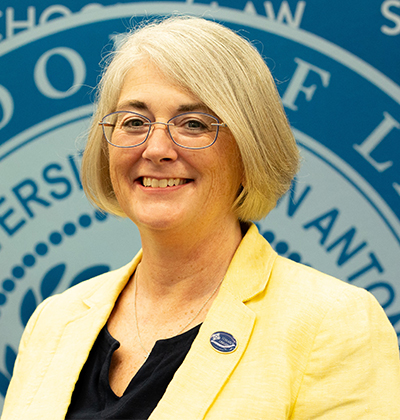
Roberts became the tenth dean of St. Mary’s School of Law on June 1, 2020. A legal educator for two decades, the majority of her career has been spent in clinical teaching, supervising law students in providing assistance to underserved members of the community. She is in her fourth year as dean, and is a Marianist Educational Associate.Roberts’ initial term as dean included the Law School’s creation of the first entirely online J.D. program accredited by the American Bar Association, increased applications and financial aid awarded to entering classes, improvements in LSAT and GPA medians, advocacy team ranking of 12th in the nation, higher graduate employment, and hosting of the inaugural Lawtina Network Summit to increase the presence of, and support for, Latinas in the legal profession. The last three years also included creation of a First Generation Bootcamp for entering students, an intensive clerkship preparation program, and student Mentor Circles with members of the bench and bar. The Law School’s five-year Strategic Plan was also adopted in anticipation of its Centennial in 2027, and significant funds are being raised to support its future.
Roberts earned her Bachelor of Arts degree from Randolph-Macon Woman’s College in Lynchburg, Virginia, with a double major in Biology and Psychology. She practiced law for eight years as a solo practitioner and later as a managing partner of a civil practice law firm after earning her law degree from William & Mary.
She returned to William & Mary in 2000 and held numerous administrative roles until her appointment to the clinical faculty in 2008 as Director of Clinical Programs. In 2017, after holding numerous administrative and academic positions, she was named Vice Dean, a position she left to become the Dean at St. Mary’s.
As Vice Dean, Roberts was William & Mary Law’s chief academic officer, responsible for academic programs and policies that are essential to an excellent legal education. She simultaneously served as the Director of Clinical Programs, overseeing a center and nine legal clinics that provided pro bono representation to underserved clients in Virginia’s Hampton Roads area. The school’s first in-house clinics, including those specializing in veterans’ benefits, elder law, special education, appellate and Supreme Court litigation, and a center for coastal policy, were created during her tenure as director. She also helped create the Institute for Special Education Advocacy, an intensive one-week program to train attorneys and advocates to maximize their effectiveness. A similar program has now been created at St. Mary’s, the Special Education Advocacy Summit.
Roberts has been a nationwide leader in legal efforts to aid veterans. She was the inaugural President of the Board of Directors of the National Law School Veterans Clinic Consortium and creator of Military Mondays, a program that began at William & Mary Law School and served as a model for providing advice and counsel to veterans in numerous Starbucks locations across the country. She was a regular speaker on issues related to veterans’ law and access to justice nationwide.
Roberts is the host of the Aspen Leading Edge, and was the founding host of EdUp Legal, both podcasts about legal education and its future.